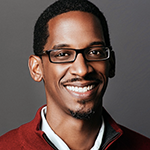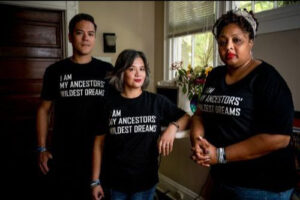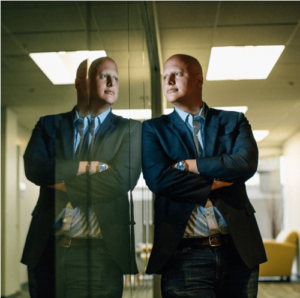‘Be the Disruptor’
Panelists Urge Action to Reinvent the College Admissions Process
A panel of college admissions experts urged educators, families, community leaders and others to use this moment to reinvent the college admissions process as a more equitable system designed for the needs of students of color, those from low-income families and other minoritized groups.
Speaking during a Sept. 16, 2020, panel sponsored by the NSF INCLUDES Alliance: STEM PUSH Network and the STEM Learning Ecosystems Community of Practice, three college admissions experts discussed how the COVID-19 pandemic has stalled standardized tests, making now the ideal time to push for radical change in the college admissions process.
The webinar was the second in a series of conversations intended to call attention to the STEM PUSH Network and its work with broadening representation of minoritized and underrepresented students in STEM in higher education.
The STEM PUSH Network will sponsor additional webinars and workshops through the STEM Learning Ecosystems.
Watch the Full Conversation Here
See Highlights from the Conversation Here
Join the discussion with expert panelists:
 With three decades worth of experience in student testing, meet Akil Bello, Senior Director of Advocacy and Advancement, FairTest.org – Biography
With three decades worth of experience in student testing, meet Akil Bello, Senior Director of Advocacy and Advancement, FairTest.org – Biography
 Former college counselor turned organization founder and advocate, Marie Bigham, Executive Director of ACCEPT – Biography
Former college counselor turned organization founder and advocate, Marie Bigham, Executive Director of ACCEPT – Biography
 Appointed by Michelle Obama to lead the Reach Higher Initiative, Eric Waldo, Executive Director of Reach Higher, VP for Access and Equity, Common App – Biography
Appointed by Michelle Obama to lead the Reach Higher Initiative, Eric Waldo, Executive Director of Reach Higher, VP for Access and Equity, Common App – Biography
Moderated by TIES Consultant Jeremy Shorr, the hour-long webinar included numerous questions from the audience and an overall call to action that Waldo described as a need to “disrupt the system.”
“I think we need to just disrupt this system. And that means being desperately honest about how the system is failing students of color, failing low income students. And we can’t all shrug and say, ‘oh, yeah, it’s too bad.’” – Eric Waldo
Other Highlights from the Conversation Include:
About the overall college admissions process and what is valued
“When you start to measure which things are valued and which things aren’t. It almost somehow, miraculously, coincidentally, not intentional at all, lines up with wealth and race. And I think we have to interrogate that. As STEM programs, you have to interrogate – ‘Is calculus the push or is there some other thing that we really are trying to get at there?’ … I think those are the issues that tend to come up in college admissions that people overlook. They call the S.A.T. a test of college readiness, which I call B.S.” – Akil Bello
“Colleges have these institutional priorities and they’re handed down to the enrollment managers who were then told, you have this plate of competing goals, go for it – it’s always fighting against each other. Then you have folks from some departments saying, ‘well, it’s absolutely critical that all of our students have calculus.’ So, this keeps getting pushed up…and that’s why I think this is one of the biggest fallacies about the entire admissions process – we have sold it as a story that it is about these students finding the right college….This process has anything to do this to just the individual, but rather what goal they show is an institution.” – Marie Bigham
Panelists’ hopes and fears concerning changes with the college admissions process
“I hope that we get rid of demonstrated interest as a metric – e.g. colleges that track student communication and how you open emails. Do you engage on social media? Do you go to the business? You do all those things as a way for colleges to gauge your likelihood of yielding and attending and things like that that I’d want a part of think of as the process they disappear. I really hope that demonstrated interest goes away, because right now for colleges, it’s really hard to figure that out without recruitment, travel and things like that that goes. I think that could be an enormously positive change. I believe that we’re going to see a streamlining of the process this year, that we’re going to see more colleges say and to their benefit.” – Marie Bigham
“My bigger concern is maybe dark and cynical, living in this pandemic too long. My biggest concern is that ability to pay will become the most important factor in admissions.” – Marie Bigham
“I think that the biggest thing I hope to see continue is the increased questioning on ‘is there value that we’re getting out of all the cost of standardized testing’ and to challenge the notion of test prep as a solution? I think one thing that’s important to note is my full my full-time job is fighting against standardized test misuse. My part time job, which pays me far more, is a test prep tutor. And I’d like to see that go away because there is no rational world where you create a barrier and then say the solution is to pay somebody to help people around the barrier.” – Akil Bello
“A mentor of mine, Dan Porterfield, is famously quoted as saying, ‘you know, we need to make colleges more student ready as opposed to, you know, students college ready.’ And I think about that a lot in terms of how we think about design of the application or all these systems. We’re talking about tests. We’re talking about counseling. We’re talking about the application itself. I think there’s a lot of work we can continue to do to redesign and challenge the fundamental assumptions. You talked about some cost. I’ll say based on cost assumptions that, well, we’ve always asked the question this way. Do we actually need it? Is that what is going to help drive equity in education? Is that going to help more dreamers get a degree? More men of color get a degree. If you’re in the bottom income quartile today, you have a nine percent six-year graduation rate compared to 73 percent. If you’re in the upper income quartile, that’s before COVID-19. We got a lot of work to do.” – Eric Waldo.
Panelists’ thoughts about how to bring equity to the college admissions process
“I think it’s really important that we interrogate this problem and question to, again, just be honest about addressing the systemic inequity that already existed.” – Eric Waldo
“We just have to be really desperately honest about the fact that the system was already, in many ways broken and racist beforehand. And we are trying to fix it kind of tinkering at the edges. Now we’ve sort of cut out the bottom and it’s really, really broken. And that means we will have to think very differently and challenge ourselves to not just accept these incremental status quo types of orientation. But how do we radically reimagine how we do work in a way that does that? Well, and I think it’s really interesting. I’ve spent some of my career in the K-12 side. I spent probably the last decade or so more in college access and higher ed space. But, you know, higher ed is both really successful in this country, but also really immune to change and unregulated from our federal government policy perspective.” – Eric Waldo
“I think we have to interrogate all of these different things and recognize that a large portion of what we’re selecting for is not academic ability. And if we were more honest about that, we would have better conversations.” – Akil Bello
“I think we actually probably need to start over and use some great human-centered design with an equity lens to create a totally different system. This should be disruptive, the same way Netflix disrupted blockbuster, the same way Spotify and Apple disrupted music. You can do it. Please take me up on it. You can be the disruptor for how we totally, radically reimagine how we let people achieve their potential in higher education.” – Eric Waldo
“I would argue there are plenty of people who actually think that we should do higher ed in the same way that the only equitable way to hire it is say we should do a lottery. There’s no shortage of people who would succeed at Harvard, at Ohio State, at Case Western, et cetera. Why have we created this system? In many ways, the admissions people aren’t necessarily saying it is not a meritocracy. They are not. They have plenty more people who they know could succeed before they succeed in college. Again, I would argue many, many, many, many, many students can achieve that. So then how are we thinking about distributing that opportunity? So, again, to me, we already do actually have the data that GPA is actually a much stronger predictor of college success than an S.A.T. ACG. Also, again, we know there’s a great researcher named Angela Duckworth who works at the University of Pennsylvania. She talks about grit, persistence and tenacity. That’s what her research is. Again, she’s talked about how we measure that sort of stick to it? It’s it’s liveness, which is actually more important than whether you’re a great standardized test taker for your happiness and success in life or confronting challenges and bouncing back. So that’s resilience.” – Eric Waldo
